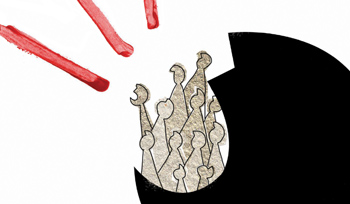Submitted by Denitsa on
ECtHR (RUSSIA)
Title:
Alekseyev v. Russia
Court:
European Court of Human Rights
Citation:
Case of Alekseyev v. Russia, Applications nos. 4916/07, 25924/08 and 14599/09
Date:
21 October 2010
Instrument(s) Cited:
European Convention on Human Rights ("ECHR"): Articles 11, 13, 14,
Domestic Provisions:
Constitution of the Russian Federation
The Federal Law on Assemblies, Meetings, Demonstrations, Marches and Picketing
Case Summary:
Background:
The applicant complained to the European Court of Human Rights of the refusal of the authorities to permit him to hold a “Pride March" to draw public attention to discrimination against gay and lesbian persons in Russia. Moscow authorities blocked the march on the grounds that that the event was "against health and morals", due to fear of public unrest that may have followed such a march. The applicant repeatedly attempted to host gay pride events, but each time, he had his petitions rejected by the Moscow authorities. The applicant appealed to national courts, but they upheld the Government's ban, finding that the ban was justified on safety grounds.
Issue and resolution:
Discrimination. Whether the refusal to allow a parade drawing public attention to discrimination against the LGBTI minority in Russia constitutes a violation of the rights granted under the ECHR. The Court ruled that there had been a breach of the right to peaceful assembly (Article 11) alone as well as in conjunction with the right to non-discrimination (Article 14) and in conjunction with the right to an effective remedy (Article 13).
Court reasoning:
The Court resolves that (i) the Moscow authorities did violate the applicant's right to peaceful assembly under Article 11 of the Convention, (ii) the applicant was denied an effective remedy for having his right to free assembly violated and (iii) the Moscow authorities improperly denied the applicant his rights as set forth in the Convention due to his sexual orientation.
The Government argued that the ban on the events was imposed in accordance with law, had pursued a legitimate aim and was necessary in a democratic society. The Government emphasized that homosexuality was incompatible with prevailing religion doctrine, and that there was a risk of safety issues.
The Court acknowledges that the Moscow authorities interfered with the applicant's right to assemble, and rejects the Government's argument that the march would cause public disorder. The Court found that the Government was unable to prove with any certainty or specificity that there would be any violent disturbances, and that the ability of a minority to exercise his rights to assemble should not be dependent upon the approval of the majority. Such a rejection would be antithetical to democratic values.
The Court then held that the Moscow authorities denied the applicant an effective remedy for the violation of his freedom to assemble, finding that the Moscow authorities' delays in rejecting the applicant's application to hold a protest were not reasonable.
Finally, the Court found that the Moscow authorities treated the applicant in a discriminatory manner based on his sexual orientation. The Court notes that the authorities imposed the ban because they disapproved of the demonstrations as promoting homosexuality, and cited statements made by the mayor and other political officials.
Impact:
The Case of Alekseyev represented a significant victory for LGBTI rights in Russia. However, since the case was decided, Russia has passed certain anti-LGBTI legislation. In 2013, Russian President Vladimir Putin signed into law a bill which made the distribution of “propaganda” among minors in support of “non-traditional sexual relationships” a crime and the constitutionality of that law was confirmed by a 2014 decision of the Russian Constitutional Court.
Notes:
For more information on children’s right to freedom of expression and access to information, including a selection of case law, please see CRIN’s campaign ‘Protect children, end censorship’.
Link to Full Judgment:
http://hudoc.echr.coe.int/sites/eng/pages/search.aspx?i=001-101257
This case summary is provided by the Child Rights International Network for educational and informational purposes only and should not be construed as legal advice.

